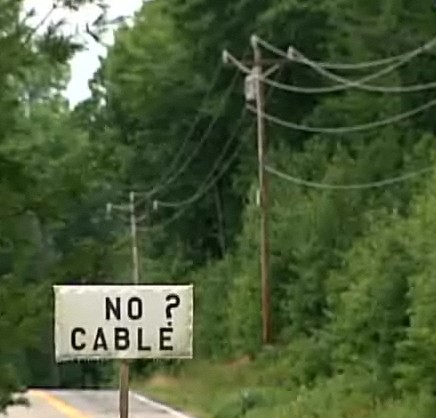![]() Just a day after Netflix announced they are coming to Canada, Rogers Cable has responded by announcing it is lowering the usage allowances of its customers. Stop the Cap! reader Munly writes to inform us Rogers Lite service plan, intended for occasional users, has dropped its 25GB usage allowance to 15GB per month, making it suitable for even less usage.
Just a day after Netflix announced they are coming to Canada, Rogers Cable has responded by announcing it is lowering the usage allowances of its customers. Stop the Cap! reader Munly writes to inform us Rogers Lite service plan, intended for occasional users, has dropped its 25GB usage allowance to 15GB per month, making it suitable for even less usage.
New customers on Rogers’ popular Extreme plan will find their usage limit cut from 95GB to just 80GB per month. But if you accept the cut in your allowance, Rogers will increase the speed on that tier from 10Mbps to 15Mbps, allowing customers to blow through that usage limit that much quicker.
Existing customers may be grandfathered in, at least temporarily, but Rogers is notorious for eventually terminating grandfathered plans and moving customers to higher-priced alternatives.
All this from a company that claims it offers its customers “abundant usage.”
Rogers buries in the fine print the fact customers can stay with their current higher allowance if they forego the speed increase.
With the new lowered usage allowances, Rogers offers tips for customers to reduce their usage, including our favorites:
Use medium quality photos when sending them through e-mail. Your family’s cherished memories don’t deserve high resolution, even if you want to send them to a digital photo lab for printing. Maybe you could get the kids together and have them draw copies of those vacation pictures with crayons. At least they won’t be online using up your Rogers Internet ration.
Be aware of how others in your home use your Internet connection. If you are not spying on your family’s online usage, it’s your own fault if we send you an enormous bill. In the time it took you to read these tips, your kids could have downloaded over 20 e-mails, looked at more than three web pages, or watched almost a minute of online video. Don’t make us bill you for that.
Turn off Peer-to-peer programs when you’re not downloading. Better yet, since we know you are using them to steal the content we’d like to sell or rent you, stop using them altogether… or else.
Try the tools. No, we’re not talking about us, silly. If you are doing more than reading your e-mail or browsing web pages, look out because we’re coming for your wallet. You can try and outwit our overcharging ways by using our usage notifications service, which will flash messages to you that we’re about to cash in on your over-usage. Hey, don’t say we didn’t warn you! Remember, if you use Rogers Internet to download files, stream video or music or play online games, we own you.
Does this mean I should use the Internet less to avoid paying more? Is Sarah Palin American? You betcha. We want to get the most out of our customers who use their Internet service too much, which is why we expose them to up to $5.00 per gigabyte if they exceed our ever-dwindling usage allowances. Our goal is for you to feel free to use the Internet as you always have, just so long as you recognize it’s not free and that you’ll need to pay us for every web page your read, more if you dare to watch cable programming online you should be watching on our cable TV service. The only surprise you’ll have about your bill is that we haven’t found a way to charge you even more… yet.
What About Netflix? Seriously? You weren’t really thinking of using that service on Rogers were you? A word to the wise — we can cut your allowance down even further. Go outside. Read a book. Rent a movie from Rogers Plus or enjoy some great Rogers Cable TV.
Rogers Cable’s Internet Packages
A Before And After Comparison


 Subscribe
Subscribe










